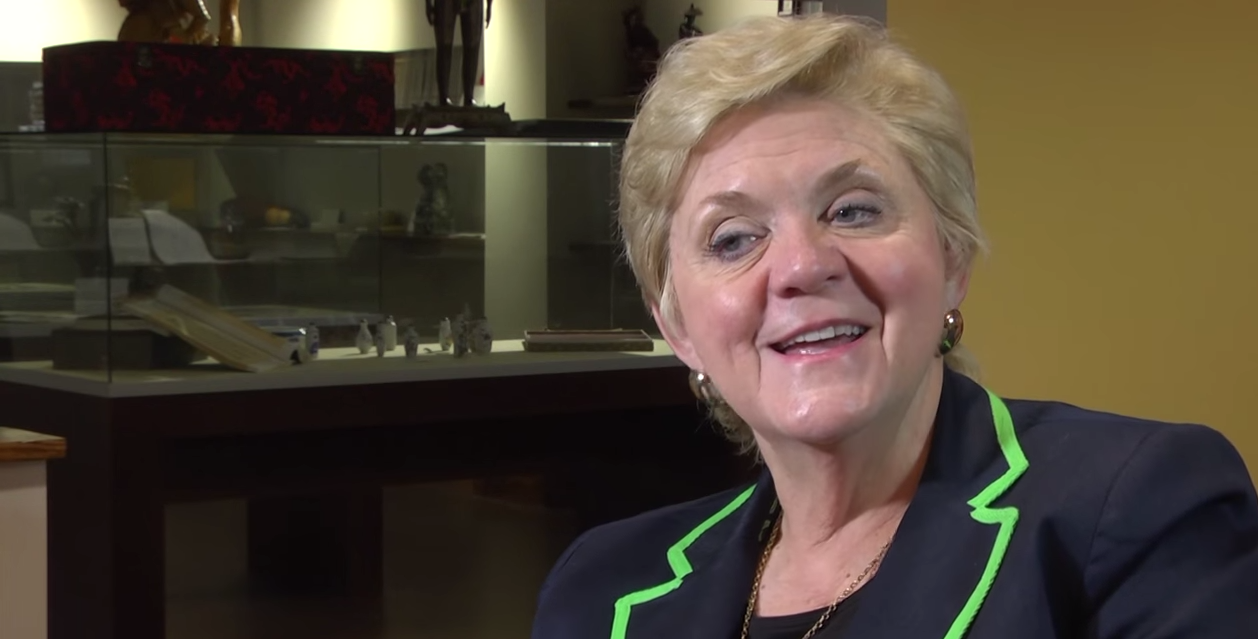Throughout history, few philosophers have ever matched the sheer greatness of Confucius.
Today, his name – if not his message – is universally known.
No other scholar has had a more pronounced or visible effect on Chinese education than “Master Kong” – the honorific by which he was known – and his teachings, referred to collectively as Confucianism, are even regarded as gospel by some.
It’s safe to say, then, that the name “Confucius” brings with it a great many positive connotations. But what can the land of his birth teach us?
A great deal, it turns out.
In March of 2014, GRU made history by becoming the first comprehensive academic health center to be affiliated with a Confucius Institute. A nonprofit, public institute for the study of Traditional Chinese Medicine, Chinese language and culture, the Confucius Institute at GRU was created in partnership with the Shanghai University of Traditional Chinese Medicine, one of the oldest and most notable universities in China.
One of 400 such institutions across the globe, the Confucius Institute at GRU was the first in the Western Hemisphere to focus on teaching Traditional Chinese Medicine.
Now, under the direction of Cindi Chance, that focus is being magnified.
“Probably 20 years ago, people wouldn’t have accepted even basic Traditional Chinese Medicine in this country,” she said, examining the role of TCM in Western medicine. “Now, there are a lot of doctors who practice it. Many use it to control pain instead of medication.”
It seems almost unbelievable – using ancient medicinal practices to replace modern medicines. But in the future, the transition could save lives.[mks_pullquote align=”right” width=”300″ size=”22″ bg_color=”#ffffff” txt_color=”#002664″]“It’s much broader than that. It’s about teaching, and it’s about culture. How do you marry those two and get the work, and the benefit, that you want for the university?”[/mks_pullquote]
“In the U.S., we have too many folks who are on the streets because they’ve become addicted to pain medicine,” she said. “Unfortunately, some of those are veterans who come back with recurring pain and get so badly addicted that they can’t hold a job or look for work.”
It’s a tragic situation. However, it is also one Chance believes can be prevented through the use of TCM.
“Chinese medicine, which includes Tai Chi by the way, is more about preventive than corrective techniques,” she said.
While some patients do choose to undergo corrective TCM procedures (using acupuncture instead of anesthetic during surgery, for example), Chance said the focus of TCM is more about preventing or relieving pain before it starts. Things like eating healthy and exercising regularly, treatments Westerners would refer to as “holistic,” all fall under the umbrella of TCM. There’s no denying the prevalence of holistic medicine among newer generations.
That’s why the Confucius Institute is working on a certificate for students taking TCM courses.
“It’s in the works, but if it’s approved, it would show up on the transcripts of students who have taken TCM classes,” said Chance. “Hopefully, students would be able to practice that as doctors, but even if they don’t, just being able to understand that way of treating patients is a tremendous asset to a health care professional’s caregiving.”
But the Confucius Institute isn’t just about TCM, Chance cautioned. Medicine, she said, was only the beginning.
“It’s much broader than that. It’s about teaching, and it’s about culture. How do you marry those two and get the work, and the benefit, that you want for the university?”
It’s a perplexing question, and one with multiple answers.
One solution is the Moon Festival.
In Chinese culture, the Moon Festival is a traditional harvest festival held every year in anticipation of the fall equinox. The tradition began in imperial China sometime between the 16th and 10th century B.C., during the Shang dynasty. Since then, the festival has spread to Taiwan and Vietnam, with similar festivals held yearly in Korea and Japan.
Though the original purpose of the Moon Festival has been lost to time, the Confucius Institute’s Moon Festival closely mirrors our own Thanksgiving. The two-hour event will feature a parade for families and friends, as well as the chance to partake in an ancient Chinese tradition – the eating of moon cakes.
“Moon cakes are traditional Chinese pastries filled with bean curd,” Chance explained. “Normally, families would come together to make moon cakes, but we’ll have some on hand.”
Chance, an expert on Chinese culture and Southern sensibilities alike, said moon pies would also be available for those who were feeling a little less adventurous – something she completely understands.
“I’ve had them,” she said, chuckling. “They aren’t for me, personally.”
This year, the Confucius Institute’s Moon Festival will coincide with Confucius Institute Day – a celebration of all 400 Confucius Institutes globally. Both events will take place on Oct. 1.
[mks_pullquote align=”right” width=”300″ size=”22″ bg_color=”#ffffff” txt_color=”#002664″]“In some ways, we’re like most universities and communities,” she said. “We’re very ethnocentric; we’re not really interested in ‘going out,’ so to speak.”[/mks_pullquote]But the Moon Festival isn’t the only way Chance intends to further the Confucius Institute’s unique mission.
“We’re in talks about hosting a Chinese New Year party,” she said. “We’re also going to be bringing in Chinese entertainers over the next couple of months, along with an expert martial artist who will be with us for two weeks.”
The Confucius Institute will also host an oncologist specializing in Traditional Chinese Medicine, as well as performances from Chinese acrobats, Tai Chi masters and an operatic singing group.
Chance’s excitement about leading the Confucius Institute is palpable, but not altogether surprising. She has a long history with the world’s most populous nation.
“I’m new to the Institute, but I’m certainly not new to China,” she explained. “I started going in 1989, and I think the last time I went, last spring, was either my 15th or 16th visit.”
Chance, who lived in China for six months as a Fullbright scholar, said understanding our biggest economic competitor is a crucial part of living in today’s world – something most Americans take for granted.
“In some ways, we’re like most universities and communities,” she said. “We’re very ethnocentric; we’re not really interested in ‘going out,’ so to speak.”
In fact, that’s one of the reasons why the Hanban, the Chinese authority promoting the expansion of Chinese language and cultural understanding, puts so much emphasis on properly funding Confucius Institutes like the one at GRU. And no, that isn’t a misprint.
The Hanban directly funds Confucius Institute events.
“The Hanban is very generous about funding activities that we as an institution request,” said Chance. “We send in a budget every year saying this is what we’d like to do, so if there are other things that other faculty and programs are interested in relating to the Confucius Institute, we just need to put it in our budget.”
Chance said it’s a resource she hopes others will take advantage of moving forward.
In addition to funding Confucius institute events, the Hanban also offers opportunities for students and faculty to visit China. The cost of the entire trip, minus airfare, is covered by the Hanban, and in the case of students, these mini-scholarships can last up to two weeks or longer, depending on the circumstances.
One such group is heading to China next year.
“We’re going to be taking a group mostly of faculty and staff to China in the spring,” Chance said. “Hopefully, this will be some of the faculty and staff’s first time there. I think it’ll help us better understand China. I think it’ll help us understand our own country, too.”
Ultimately, that’s what it all comes down to, Chance said. Better understanding China to better understand ourselves.
“China isn’t a perfect country,” said Chance. “It has its faults – believe me, it has its faults – but so does our own. So does every nation. It’s about learning from those mistakes, and using that information to improve our own country and our own culture.”
To those who say otherwise, perhaps Confucius explained it best when he said:
“Don’t complain about the snow on your neighbor’s roof when your own doorstep is unclean.”
 Augusta University
Augusta University




